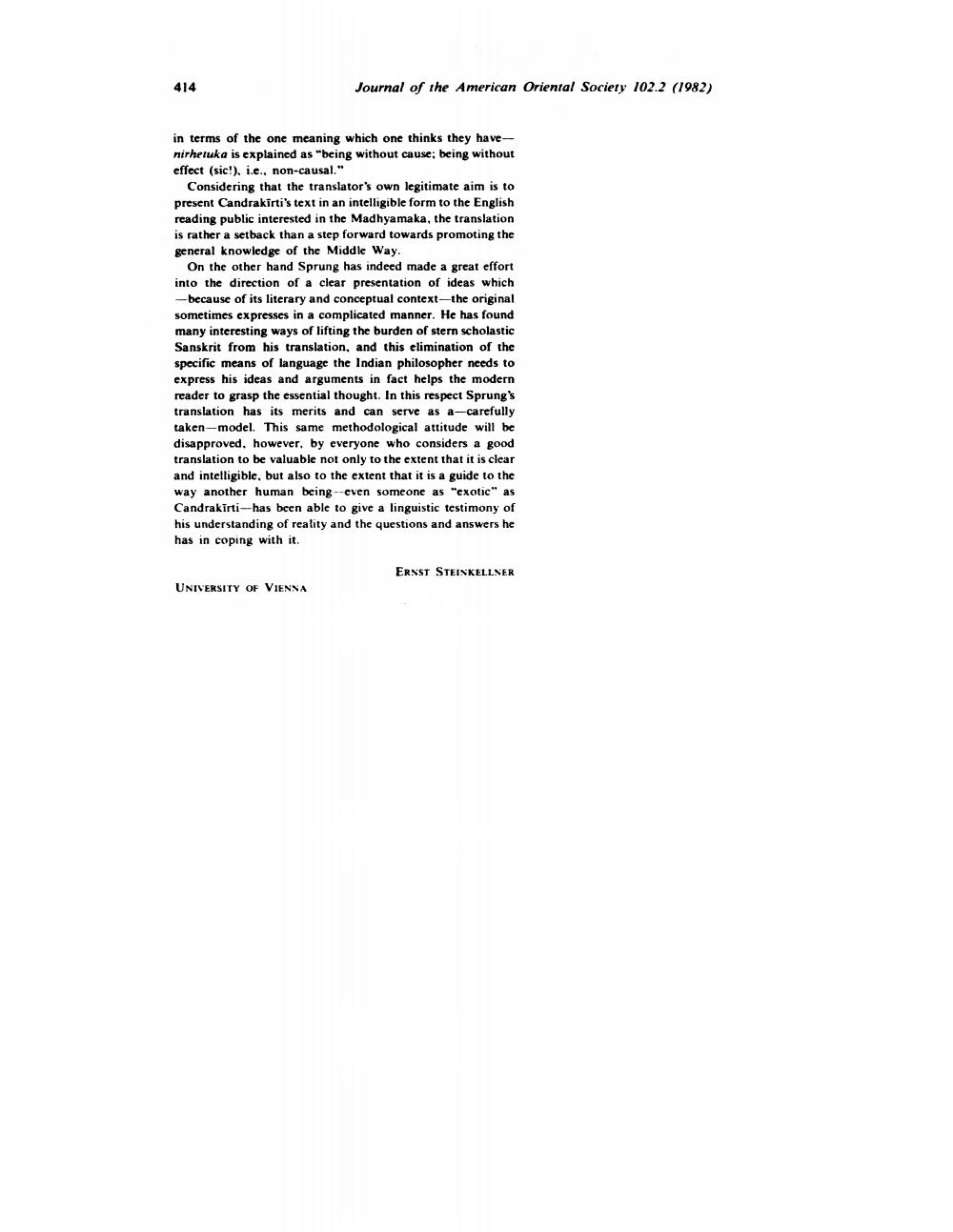Book Title: Book Reviews Author(s): Ernst Steinkellner Publisher: Ernst Steinkellner View full book textPage 4
________________ 414 Journal of the American Oriental Society 102.2 (1982) in terms of the one meaning which one thinks they havenirhetuka is explained as being without cause; being without effect (sic!), i.e., non-causal." Considering that the translator's own legitimate aim is to present Candrakirti's text in an intelligible form to the English reading public interested in the Madhyamaka, the translation is rather a setback than a step forward towards promoting the general knowledge of the Middle Way. On the other hand Sprung has indeed made a great effort into the direction of a clear presentation of ideas which --because of its literary and conceptual context--the original sometimes expresses in a complicated manner. He has found many interesting ways of lifting the burden of stern scholastic Sanskrit from his translation, and this elimination of the specific means of language the Indian philosopher needs to express his ideas and arguments in fact helps the modern reader to grasp the essential thought. In this respect Sprung's translation has its merits and can serve as a-carefully taken--model. This same methodological attitude will be disapproved, however, by everyone who considers a good translation to be valuable not only to the extent that it is clear and intelligible, but also to the extent that it is a guide to the way another human being --even someone as "exotic" as Candrakirti-has been able to give a linguistic testimony of his understanding of reality and the questions and answers he has in coping with it. ERNST STEINKELLNER UNIVERSITY OF VIENNAPage Navigation
1 2 3 4
